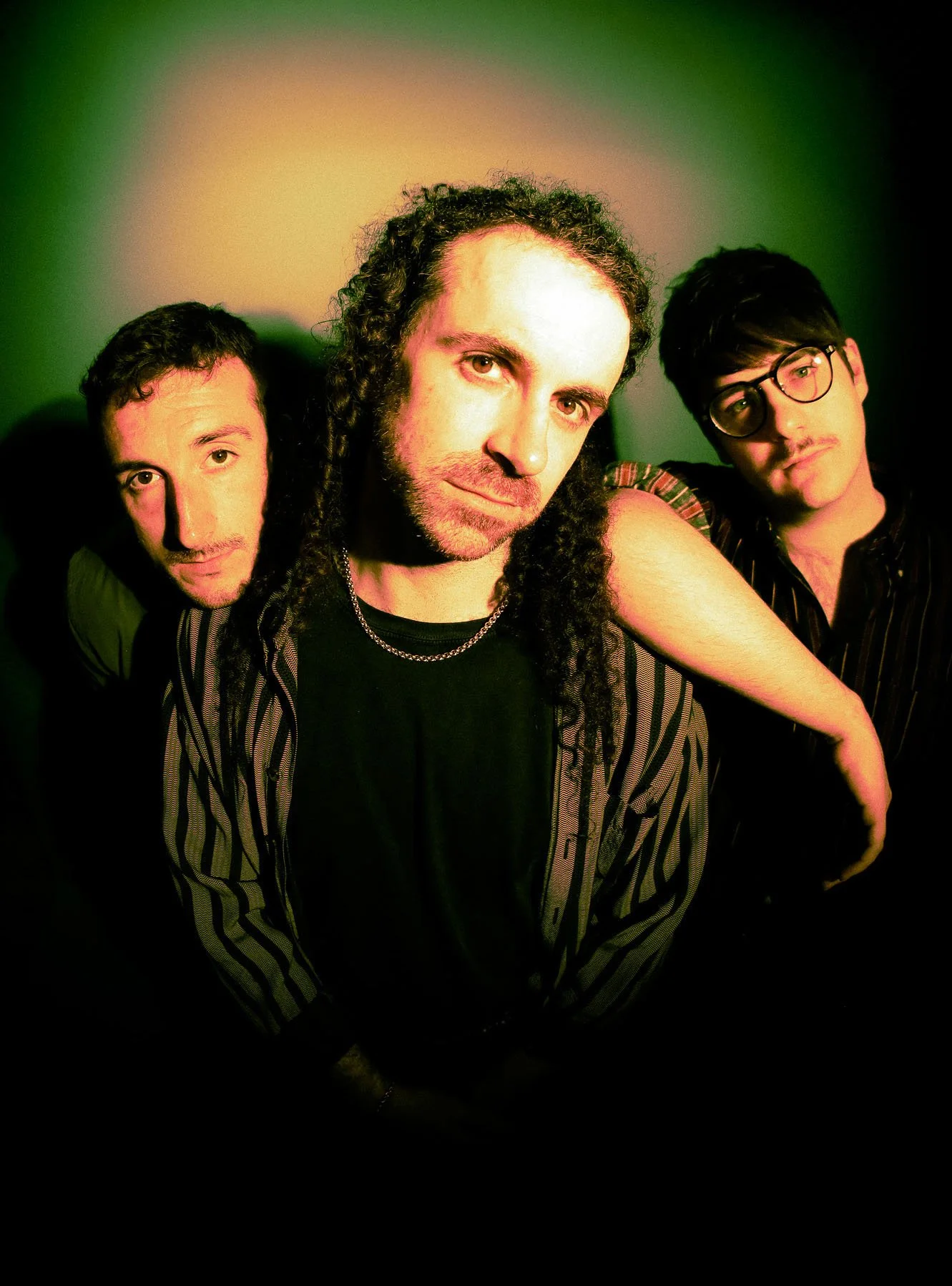Q&A: Dublin-Based BODIES Return With a Collection of Life Experience
INTERVIEW
INTERVIEW
☆ BY GIGI KANG ☆
GRUNGE-INSPIRED, SHOEGAZING DUBLIN-BASED BODIES—released their new album Ores on July 18. The record is both grim and optimistic. Inspired by personal experiences of illness, the stories of others, the city of Dublin, and returning to creating music after a sizable break, it’s an accumulation of both internal and external observations. What stands out is its partnered consideration of dread and hope.
Most of the album is guitar-driven accompanied by David Anthony Mc Geown’s low vocals that quickly jump into hardy screams. The drum presence shifts from track to track, with “Stubber” as the most percussion-heavy, while “Small Short Something” closes out the album with purely layered vocals.
Ores is a dynamic album. Start to finish, it sounds like a band putting together the assorted experiences that unfolded during their break from BODIES. Their last original release was back in 2019, with a cover of Nirvana’s “Dumb” released in 2023. The most distinct example of the variety across the album is “Acid Brick” as it presents an electronic sound, completely unlike the rest. Lyrically, too, Mc Geown describes that “some of the songs have opposing ideas, opinions, thoughts, or feelings” because he was processing his own perspectives as he wrote.
And the medley of sounds and themes really works—it signals a band that has returned with openness and a willingness to grow.
Read Luna’s full conversation about Ores with Mc Geown below.
LUNA: You have an album launch on the 18th. What have you planned?
BODIES: We’re playing some songs we’ve never played before. We’ve got a cool light show planned. Working with the lighting engineer for that has been fun. We [previously teased] “Stubber” which has gone through various different versions. It sounds quite different live. A lot of the songs are two years old, when we recorded them. So even if we have played them live, they sound different than the record which I’m really excited about.
LUNA: “Stubber” sounds like it would be fun live because it’s drum-driven. Crowds love that.
BODIES: We’ve made it more percussion heavy. We took those elements and tried to make them even more present in the live version.
LUNA: The first song on the album is “Health” which came out of personal experiences of trauma and illness. How do you approach the decision of how much to share in your music?
BODIES: I don’t think too much about whether I want people to hear about my experiences or not. I’ll just write about how I’m feeling. If it ends up being a good song that we plan on releasing, then maybe I’ll go back and analyze to make sure I’m comfortable with what I’ve written. But usually it’ll stay the same. I’ll just tweak a word or two.
I think my writing is ambiguous enough that I don’t feel any fear about sharing or about people maybe learning too much about me. I think all of the lyrics I write could be interpreted in various different ways.
LUNA: Is that ambiguity a choice or is it naturally how you write?
BODIES: It’s naturally how I write. It’s what I enjoy. Being very poignant can be powerful, but I don’t feel like it [works well in] BODIES to be so literal.
LUNA: Ambiguity also allows people to insert their own experiences into the music.
BODIES: I saw Bright Eyes last week. A lot of their stuff isn’t that literal, but a lot of it is. I love the storytelling element. I think I try to get that balance. When I’m singing, I’m being very honest. Even if it’s not understandable to other people that I’m feeling exactly what I was thinking then. It’s literal to me, in a sense. I know the context behind it.
LUNA: What I like overall about Ores is that there aren’t really any answers. It’s more of an exploration of difficult emotions or experiences. It’s not telling you what is right or wrong. Does the creative process clarify things in your mind and help you personally?
BODIES: It helped me identify how I felt about what I was writing about. I wasn’t looking for an answer or a resolution. I was just looking to discover how I felt about something when I was writing it. That’s why some of the songs have opposing ideas, opinions, thoughts, or feelings on things. That is exactly what “Health” is about. The first two lines are completely opposite of each other. It’s like, I feel like I’m hurting myself, but I’m the one who can help myself.
Half of the album is about me being unwell, and half the album is about things like the homelessness issue we have here, or the song “No Safe Harbour” is about sex workers and their ability to stay safe. I guess it’s just describing what’s happening [and] writing down how I felt about that. I know some sex workers, and you worry about them. I know people who have been unfortunate enough to be made homeless in [Dublin]. There’s no resolution to it that I can supply. So it’s writing to understand how I feel. Once I’ve done that, it gives me a sense of peace because it’s not this big conflict in my head that I’m thinking about all the time. I can listen [back] or think back. It’s like I’ve written it in a poignant enough way for me to recenter myself.
LUNA: Similar to “Health,” the song “Dregs” touches on the uncertainty of thoughts and what you’re thinking versus what’s really happening—trying to make sense between your personal experience and the world around you. You say, “Don’t believe in everything you hear / Don’t believe in everything you feel.” That theme is consistent across the album.
BODIES: Yeah, with “Dregs,” there’s not much going on musically. It is mainly about the lyrics. It’s the same two notes over and over again. It’s about walking around Dublin and seeing all the displaced people and the people suffering in the city. That song is a burst of anger. It’s about being frustrated with seeing people suffer and not being able to do anything.
LUNA: In the video, you use the Joker as a representation of that song. He’s a very polarizing character. Why did you choose him?
BODIES: Obviously, it’s a very humorous video, but it made sense because he is part of the people who are forgotten. Clearly, the guy is very mentally ill and not doing very well. People treat him like shit. I thought it’d be a funny video and it wasn’t this big thematic thing, but it just worked. I love figurine kind of videos, like that Sum 41 song. I love Team America. I was trying to do a Team America version of it, a parody, but also saying something behind it. But the primary thing is just to be funny.
LUNA: I really like the track “Felt” because on one hand, there’s the repetition of “I will come alive,” but sonically, it’s super dark. It’s a contrast.
BODIES: Literally, that song is about coming back to playing music again. But it’s also about healing both physically and convincing myself that I will get my life back. When I read the lyrics, or I play it, whenever I sing it, sometimes it just feels like I’m going back to playing music. Sometimes it feels like I’m back in that place where I was starting to heal and get better.
In the chorus, it says, “I’ll come alive.” I couldn’t think of a line and I was describing it to a friend. She was like, “What does it mean to you? What is this song about at the root?” I said, “It’s about me coming alive again.” She goes, “Why don’t you just say that?” That personifies the entire song.
LUNA: You’ve covered a couple of Nirvana songs. What does that band mean to you?
BODIES: They’re the most important band to me, personally and musically. I could scream before I could sing. And I’m not trying to imitate them, but it’s definitely what I’m thinking of when I do it. I liked music before I heard Nirvana, but I don’t know if I loved it.
Their music has that great mixture of pop music, pop melodies, kind of noise rock, and slight avant-garde stuff occasionally. It’s very powerful and emotional without being too literal. I love that you get a feeling from it.
Cobain’s lyrics are really funny. They’re sarcastic, and it’s fucking great. I think a lot of people misinterpret them as just being sad, but there’s [humor]. For somebody who didn’t share a lot of himself, he’s so endearing. Maybe it’s because he was so ambiguous that you put a lot of what you think into it. Maybe if he was more forthright, he wouldn’t be as relatable.
LUNA: He’s one of those people who make you fall in love with music.
BODIES: Big artists show you how powerful music can be. When you encounter them for the first time, you’re like, “I didn’t know this was music.” It’s like seeing a Stanley Kubrick film for the first time. You’re like, “This is cinema.” Even watching a world-class athlete—“That’s what bodies can do.”



